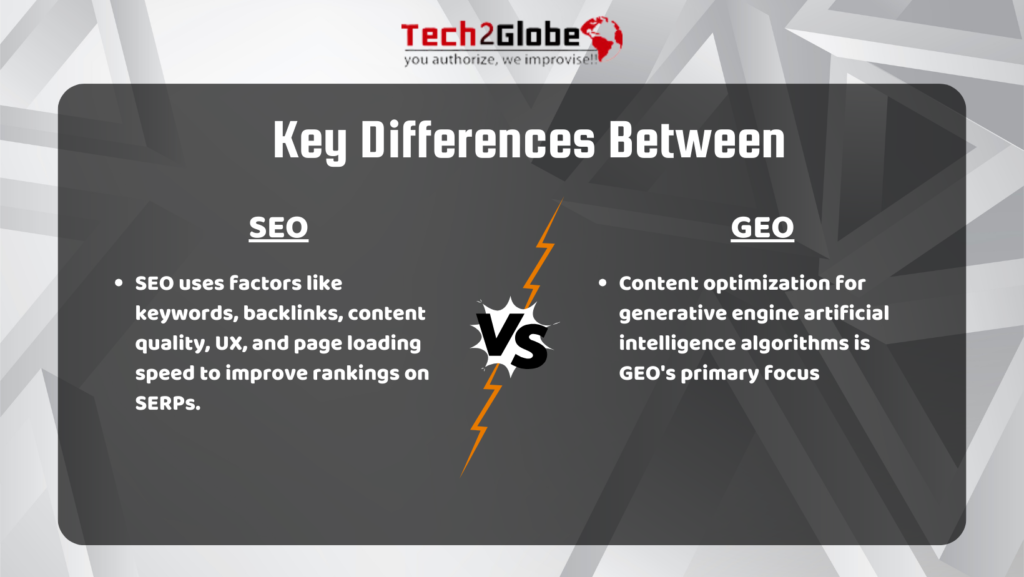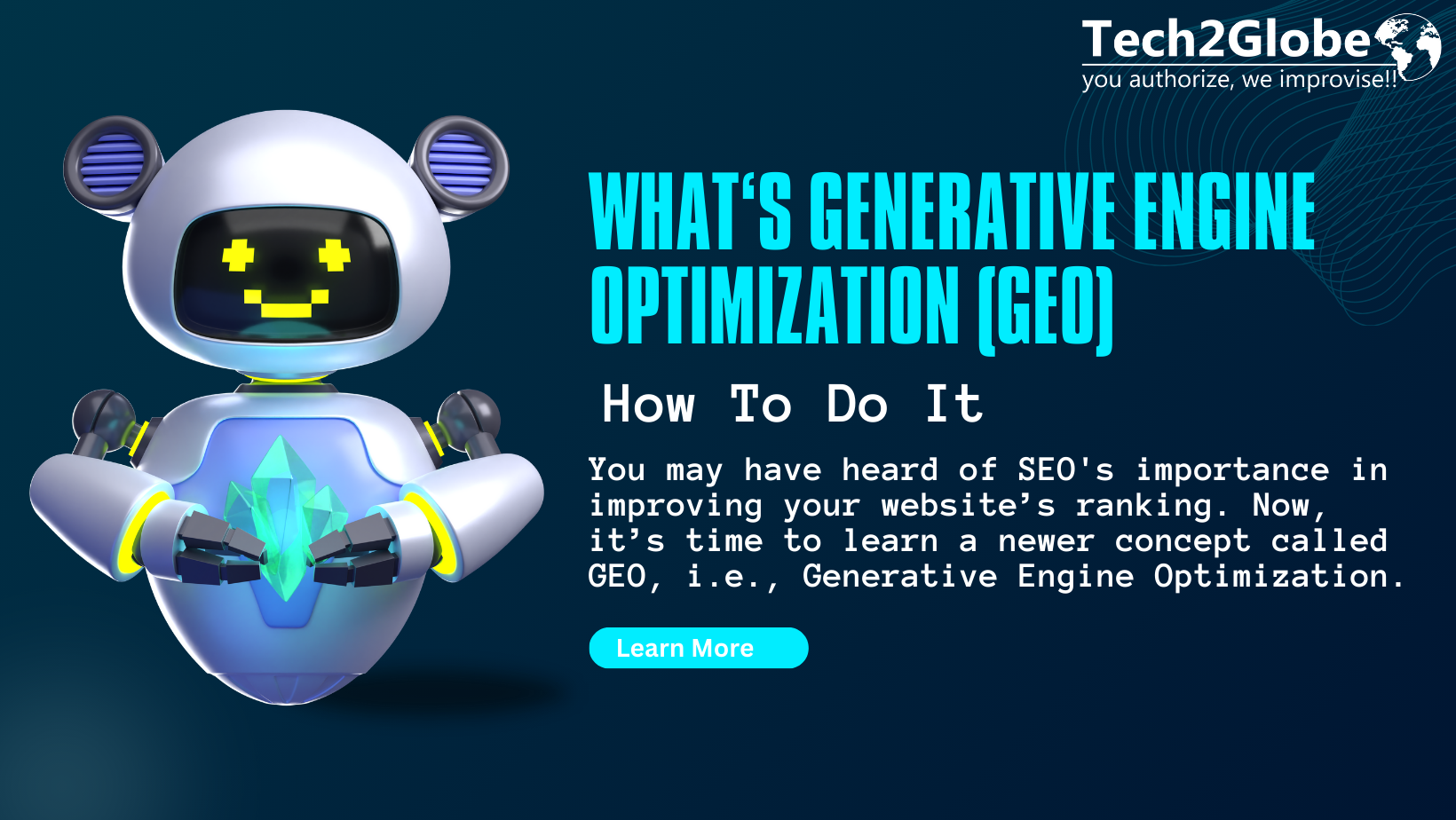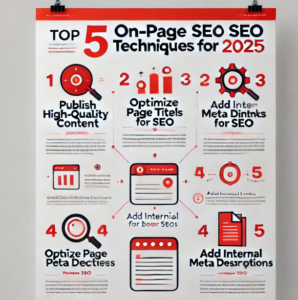Summary: You may have heard of SEO’s importance in improving your website’s ranking. Now, it’s time to learn a newer concept called GEO, i.e., Generative Engine Optimization. In this blog, discover what it is about, how it works, and, most importantly, how it will impact SEO.
Key Takeaways
- With GEO, you use AI to create content that connects with your audience, and LLMs understand it better online.
- GEs may affect the economy of content marketers in the future.
- SEO aims for better rankings, whereas GEO prioritizes creating content that generates richer AI-driven responses.
- The 9 main techniques of GEO can help in maximizing and improving website content.
Teams from Princeton University, Georgia Tech, the Allen Institute for AI, and IIT Delhi did a study that examines which strategies work best to make websites more visible in different search engines like Gemini, Google SGE, Bing, ChatGPT, and others.
This is interesting because old-school SEO methods might not work as well with these new generative engines that give direct, complete answers and could make websites get less organic traffic.
Because of this, SEO experts need to understand and adapt to this new way of doing things since Google will use this kind of AI in the coming years.
What is Generative Engine Optimization (GEO)?

GEO is a new way to optimize search engines, which works with generative engines (GE), which are search engines based on artificial intelligence.
Optimizing content on your site so that a language learning model (LLM) can better read it and use it as a source is what it means in simple terms.
Examples of Generative Engines
Here are some popular examples of Generative Engines:
Gemini (Formerly Bard)
Gemini is an artificial intelligence tool that Google created. It was first called Bard. As a generative language assistant, it can understand and answer complicated questions and develop valuable and exciting content on its own.
Gemini aims to give more accurate and human-like answers using advanced natural language processing and machine learning methods. Also, you can even use it in place of Google Assistant.
Bing Chat
Microsoft created Bing Chat, a search engine that gives consumers accurate and pertinent search results.
Developed by OpenAI, Bing Chat uses a modified form of ChatGPT to offer its conversational features, enabling the chatbot to answer questions and participate more naturally and informatively in conversations.
Thus, Bing adds artificial intelligence elements to improve the search experience by providing direct and customized answers to user questions.
Google SGE
SGE (Search Generative Experience) is a project by Google to add AI-based natural language generation to its search results. It tries to figure out what the user is trying to say by using advanced language models and coming up with answers that are clear, helpful, and appropriate for the situation.
Impact of GEO on SEO
This change will affect businesses and individuals, particularly in traffic and SEO. Digital marketing has seen traffic declines before. Contentsquare’s 2024 Digital Experience Benchmark Explorer discovered that 55% of websites in various industries had less traffic in 2023 than in 2022.
Furthermore, with AI search, many expect traffic to drop even more as ‘zero-click’ results, especially those with less specific intentions, rise at the top of the funnel.
The logic is simple: AI’s response to these more general inquiries will likely satisfy the user, reducing their likelihood of clicking and visiting your site. Therefore, as many businesses rely on traffic and online visibility to generate conversion and sales, GEs have a high potential to affect the economy of content marketers. However, content creators can boost visibility in AI-driven search environments by understanding and using GEO methods.
Key Differences Between SEO and GEO
Let’s now understand how SEO and GEO are different from one another:

Focus
Content optimization for generative engine artificial intelligence algorithms is GEO’s primary focus. On the other hand, traditional SEO uses factors like keywords, backlinks, content quality, UX, and page loading speed to improve rankings on SERPs.
Response
As we’ve seen, generative engines produce multimodal responses that combine data from different sources and formats. This differs from traditional SEO, which focuses on finding the most relevant link-based results to the query.
Queries
SERPs often couldn’t meet the demand when searching with long, detailed queries. Therefore, they provide content they consider more broadly relevant to the query. With Generative Engines (GEs), these platforms now generate responses using specific long-tail keywords, providing more precise user solutions.
SERP Positioning Relevance
Under SEO, a site’s average search result page ranking is often the yardstick for visibility. This information is less important for generative engines, which give structured, rich responses as a top priority.
How to do Generative Engine Optimization?

Research customer-relevant topics: Find out what your audience is interested in and what questions they are asking. To perform this practice you can use keyword research tools. After that check how often these questions are asked on Google. Additionally, see if there’s a connection between the two that makes sure your audience would ask these questions to an AI tool.
Create or improve custom content: Create or improve high-quality, relevant, and engaging content to answer the questions. Some of the GEO academic journal’s ideas should inform optimization or creation. Moreover, the writing should be authoritative and include reliable sources, quotes, and industry language to demonstrate trust and expertise.
Use structured data: Schema markup gives your content context and structure, which makes it easier for generative AI to understand and index.
Prioritize user intent: Consider the user’s intent when crafting your content. It will help you better fulfill their search query. Doing so will also help you keep up with the ever-changing algorithms. Doing so will also help you keep up with the ever-changing algorithms.
Share your content: LLMs train on blog posts and Reddit and Quora content. Thus, you can use these channels to influence stories that answer relevant questions.
Utilize social media: You can improve/increase the exposure and interaction with your content by sharing it on social media. This is because, when it comes to indexing and ranking content, generative AI also considers social media signals.
Effective Strategies for GEO Optimization
The researchers assessed nine GEO techniques to maximize website content for generative engines. These are a combination of traditional SEO strategies.
- Authoritative: It changes the style of the source text to make it more convincing and trustworthy so claims can be made with confidence.
- Keyword Stuffing: Like other traditional SEO strategies, this method changes the content to include more keywords from the user’s query.
- Statistics Addition: Changes the content to include quantitative statistics instead of qualitative discussion as much as possible. However, provide evidence(source) based on data.
- Cite Sources: This feature adds relevant citations from trustworthy sources to back up claims and give credit where credit is due throughout the website’s content.
- Quotation Addition: Quotes from relevant sources make the website content seem more real and in-depth.
- Easy to Understand: Simplifies the website’s language and structure, making it easier for the generative engine and users to understand and enjoy.
- Fluency Optimization: This makes the website text flow better and easier to read so you can read it without any problems.
- Unique Words: This feature gives website content interesting and unique words that make it stand out and make it more appealing.
- Technical Terms: Uses jargon and technical terms specific to the field or industry to show expertise and appeal to particular groups of people.
Conclusion
It’s hard to deal with these sudden changes, right? But don’t give up everything and change your content strategy all at once. Things are still in their early stages. Follow us and stay updated on GEOs and more.

Sarabjeet Singh is the Vice President of Operations at Tech2Globe and brings over 15 years of experience in various industries, including IoT, education, retail, government, FMCG, hospitality, and e-commerce. His leadership focuses on operational excellence and exceeding customer expectations, implementing contemporary solutions. Sarabjeet’s expertise spans e-commerce consulting, software development, data management, BPO/KPO support services, digital marketing, graphics, and startup consulting. He fosters a collaborative work environment, ensuring Tech2Globe delivers high-quality solutions.










